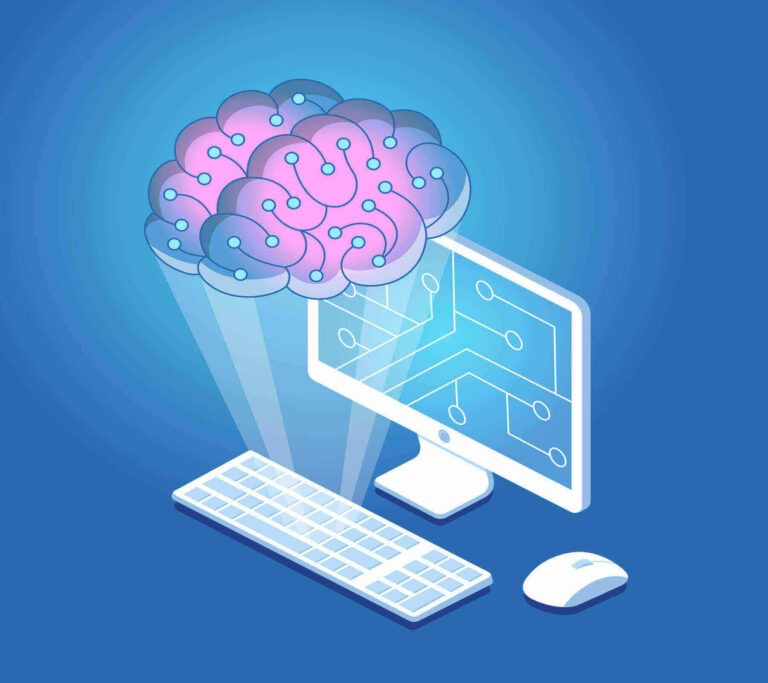Top 12 Chinese AI Projects
Here are China top AI projects, from Baidu Apollo to Alibaba Qwen AI, DeepSeek, and more. See how they’re shaping tech’s future.

China has emerged as one of the leading countries in Artificial Intelligence (AI) and is developing projects that are changing the face of industries, cities and daily life. From self-driving cars to facial recognition, Chinese companies are pushing the envelope in terms of what can be done with AI.
In this article, we are going to highlight 12 Chinese AI projects, what they aim to achieve, what has been achieved so far and why it is important. Let’s get started!
Leading Chinese Artificial Intelligence Projects
| Project | Company | Launch Year | Key Technology | Application |
|---|---|---|---|---|
| Baidu Apollo | Baidu | 2017 | Autonomous Driving | Self-driving cars, public transport |
| DAMO Academy | Alibaba | 2017 | AI for Smart Cities | Traffic management, healthcare |
| Tencent AI Lab | Tencent | 2016 | Gaming & Social Media AI | Video games, content recommendations |
| Ascend AI Chips | Huawei | 2019 | AI Processor Chips | Cloud computing, smartphones |
| SenseTime Facial Recognition | SenseTime | 2014 | Facial Recognition Systems | Security, retail analytics |
| iFlyTek Speech AI | iFlyTek | 1999 | Voice Recognition & Synthesis | Education, customer service |
| Bytedance AI Algorithms | Bytedance | 2012 | Content Recommendation Engines | TikTok, Douyin |
| Megvii Face++ | Megvii | 2011 | Facial Recognition Platform | Security, payment systems |
| Pony.ai Autonomous Cars | Pony.ai | 2016 | Self-Driving Technology | Ride-hailing, logistics |
| DJI AI Drones | DJI | 2015 | AI-Powered Drone Navigation | Filmmaking, agriculture, disaster relief |
| DeepSeek AI | DeepSeek | 2023 | Generative AI for Quantitative Analysis | Finance, healthcare, data analytics, Chatbots,content creation. |
| Qwen AI (Large Language Model) | Alibaba | 2023 | Generative AI & NLP | Chatbots, content creation, research |
1. Baidu Apollo
Company: Baidu
Goal: To develop fully autonomous vehicles.
Baidu Apollo is China’s response to Google’s Waymo. Launched in 2017, this open source platform enables developers all over the world to come up with ideas on self-driving cars. By 2023, Apollo has tested more than 500 autonomous vehicles in 30 Chinese cities, including Beijing and Shanghai according to reports.
Why It’s Important:
- Prevents traffic congestion and accidents that are caused by human factors.
- Partners with BMW, Ford and Toyota to increase the global partnership.
- Its ride-hailing service, Apollo Go, has provided more than 2 million trips since 2020.
Interesting Fact: These cars are able to navigate through the complicated traffic of China, which includes motorcycles, pedestrians and even food stalls.
2. Alibaba DAMO Academy
Company: Alibaba
Focus: Addressing urban issues through the use of AI technology.
Alibaba’s DAMO Academy (Discovery, Adventure, Momentum, and Outlook) is engaged in the development of projects such as City Brain, which uses artificial intelligence to control the traffic lights in the city. For instance, City Brain has enhanced the flow of traffic in Hangzhou by 15%.
Why It’s Important:
- Monitors the environment and predicts areas of pollution.
- Partners with hospitals to help in identifying various diseases through the use of AI.
- Facilitates the transportation of parcels by Alibaba and delivers the parcel within 24 hours.
3. Tencent AI Lab
Company: Tencent
Focus: To enhance the gaming and social networks.
Tencent’s AI Lab developed “Honor of Kings” AI that can play and defeat human opponents in the popular mobile game. They are also enhancing the voice-to-text features in WeChat and medical imaging.
Why It’s Important:
- Medical: Detects early signs of cancer in medical scans with 90% accuracy.
- Entertainment: Supports more than 1 billion users’ content recommendations.
4. Huawei Ascend AI Chips
Company: Huawei
Innovation: High-speed AI chips.
When Huawei introduced the Ascend 910 chip in 2019, it positioned itself on par with NVIDIA in terms of performance. These chips are used in Huawei smartphones, cloud servers and many other products.
Why It’s Important:
- Enables AI training for weather forecast, drug discovery and other tasks.
- Used in 200+ Chinese companies for smart manufacturing.
5. SenseTime Facial Recognition
Company: SenseTime
Specialty: Identifies faces within seconds.
Up to 400 million faces are scanned in China using the systems for security purposes in airports, schools and shopping centers. It also determines the customers’ mood to increase the sales in the stores.
Controversy: People are concerned about the privacy issue. Should AI monitor our every action?
6. iFlyTek Speech AI
Company: iFlyTek
Breakthrough: Voice technology for 20 plus languages.
More than 700 million devices, including cars and smart speakers, are powered by iFlyTek’s voice assistant. Teachers are using it to grade English compositions within 10 seconds!
Cool Feature: It can duplicate your voice after listening to you for just 5 seconds.
7. Bytedance AI Algorithms
Company: Bytedance (TikTok’s parent company)
Purpose: How to recommend content that will hook users for hours.
TikTok’s AI algorithm watches your watch time, like history, and even your eye gaze to show you trending videos. Result? The average TikTok user spends 95 minutes every day in the app.
Effect: Assisted TikTok to reach 1.5 billion users worldwide in 2023.
8. Megvii Face++
Company: Megvii
Use Case: Police surveillance and “smile to pay” solutions.
Face++ checks the identities of people boarding the subway in Beijing and lets shoppers pay by smiling into a camera. Its technology has been adopted by over 300 Chinese cities.
Data Point: Once a month, it scans 1 billion+ faces.
9. Pony.ai
Company: Pony.ai
Mission: Driverless ride-sharing.
Pony.ai’s taxis are operational in Guangzhou and California. In 2023, they teamed up with Toyota to develop 10,000+ autonomous vehicles.
Safety First: Their cars have covered 15 million miles without a single major accident.
10. DJI AI Drones
Company: DJI
Tech: Drones that can avoid obstacles and track objects.
DJI remains the leading company in the global drone market and controls 70% of it. Its AI drones are used by farmers to plant and apply fertilizer while filmmakers get Hollywood-like shots.
Life-Saving Use: When earthquakes happen, DJI drones take pictures of the affected areas to help find people who are trapped.
11. DeepSeek AI
Company: DeepSeek
Goal: Better and sophisticated AI solutions for different sectors.
Newcomer DeepSeek AI, which was established in 2023, initially made the news for its financial forecasting tools and has since expanded into healthcare, logistics, data analysis, and generative AI. It uses machine learning techniques to analyze large datasets in order to make predictions, improve processes, and solve problems.
Why It’s Important:
- Demonstrates strong performance in natural language understanding
- Took the world by storm and shook the global stock market.
- Made generative AI more affordable and even free
12. Qwen AI
Company: Company: Alibaba (DAMO Academy)
Focus: Many large language models.
Alibaba’s new generative AI, Qwen AI, was introduced in 2023. It is trained in multiple languages and can develop code, write documents, and even explain scientific concepts in simple terms.
Why It’s Important:
- Available in 100+ languages, including regional Chinese dialects.
- Qwen is used by businesses to automate customer service and analyze legal documents.
- Qwen-VL (vision-language model) describes images in real time, helping the blind and the visually impaired.
Cool Feature: It can create one week’s social media content for a brand in less than 5 minutes.
Challenges and the Way Forward
There are various challenges that affect China’s AI leadership:
- Bias & Ethics: It is important for projects like Qwen to avoid the problems of prejudice in multilingual models.
- Chip Reliance: Despite the fact that Huawei has its Ascend chips, China still imports $400 billion worth of semiconductors every year.
- Global Trust: The issue is that in the west, there is skepticism about data privacy, which hinders the adoption of tools like SenseTime and DeepSeek abroad.
Nevertheless, as investments in AI amount to $150 billion in China from 2021 to 2025, the country is well-positioned to lead in areas such as autonomous vehicles, healthcare, and language models.
Conclusion
China’s AI projects, from Baidu’s autonomous cars to Qwen’s multilingual prowess, are a display of ambition and versatility. The application of DeepSeek AI demonstrates how Chinese tech is moving from single-industry AI to solving global challenges.
Collaboration, not just competition, will define the next decade of innovation as the AI race heats up. Do you trust an AI like Qwen to draft your emails, or optimize your supply chain with DeepSeek? The future is here, and it’s all algorithmic!





